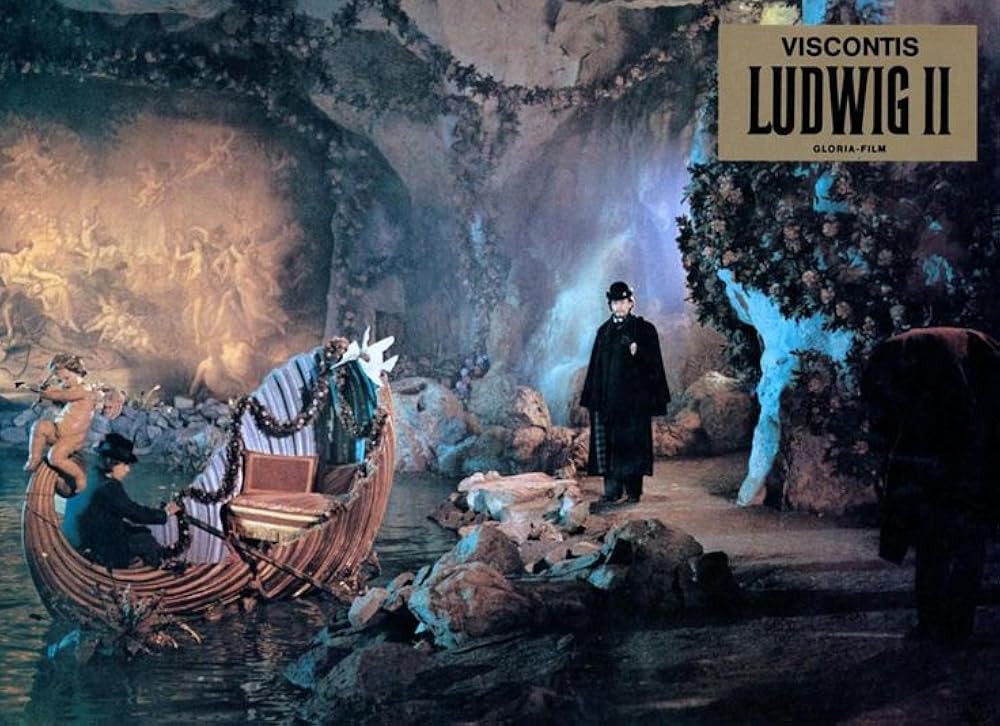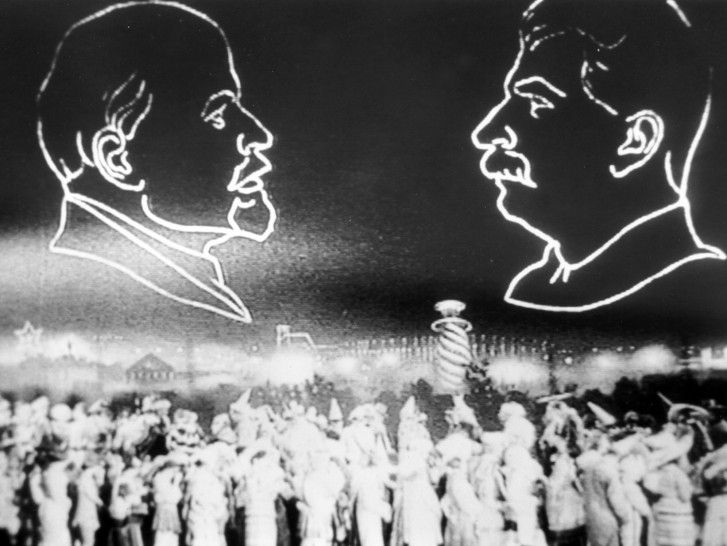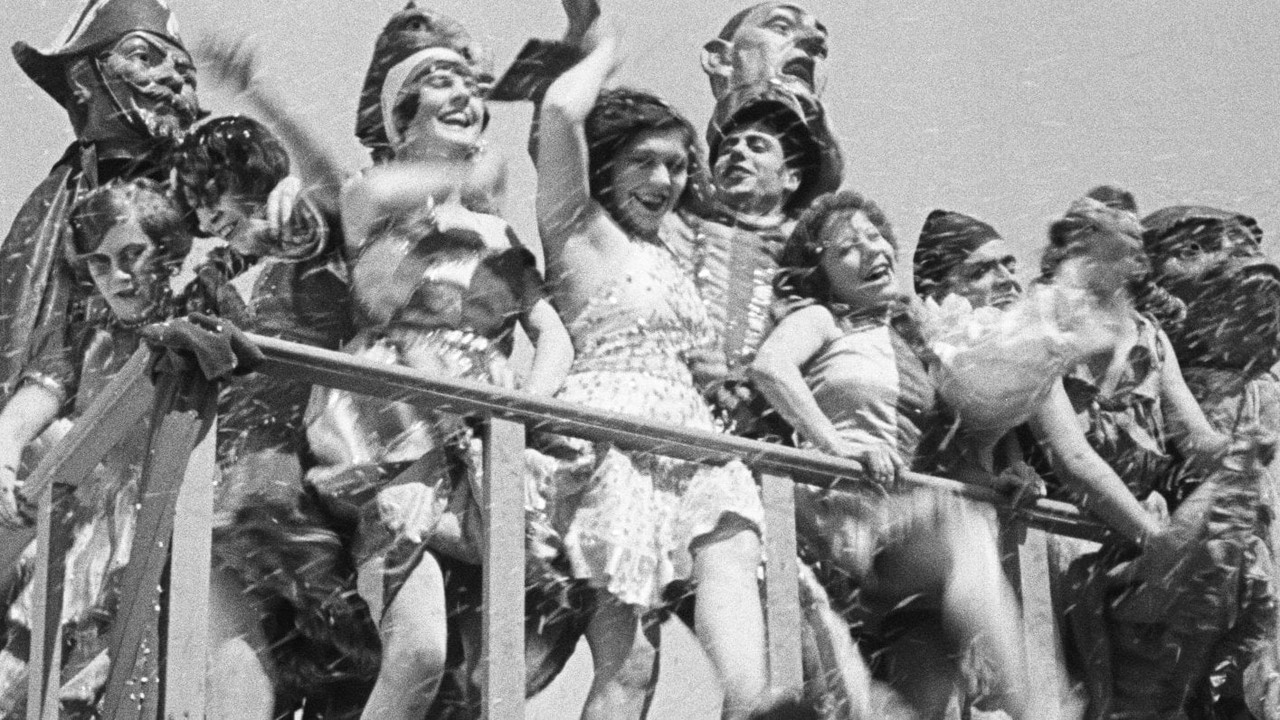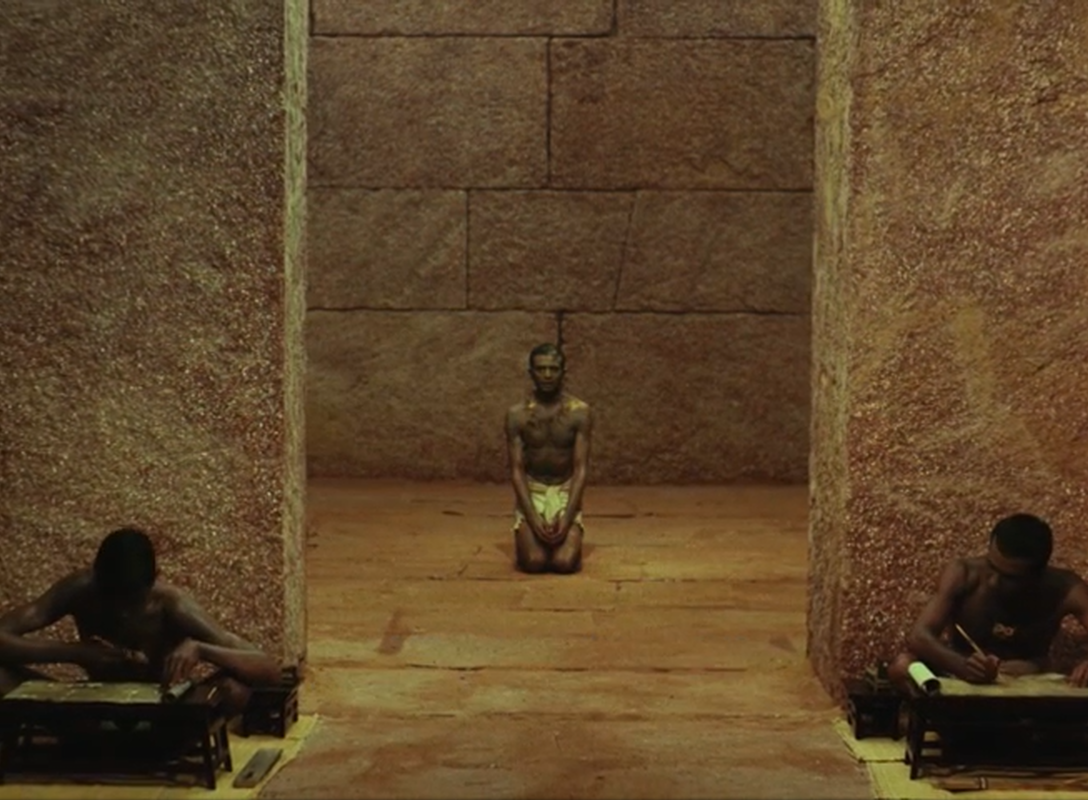Το άλλο γράμμα [To allo gramma / The Other Letter] (Lambros Liaropoulos, 1976)
Apr
6
Greece

A woman observing her own reflection (via). DP: Stavros Hassapis.
Something something Greece (or the Olympics) on the date of the 1896 Summer Olympics
Athens seen through words put down in letters, forming a narrative of the city, Greece, its history, and its people.
history
“All the ideas I'd previously had were shown to be completely false. This was the first time I had really seen the strength and the power of a mass struggle; ordinary people directly participating in organizing their communities, and the defense of their communities.”The Patriot Game (Arthur MacCaig, 1979)
Apr
4
MLK Jr. – 1968

A older lady calmly clips her hedges while a British soldier attempts to hide behind them (via). DPs: Arthur MacCaig & Théo Robichet.
The assassination of Martin Luther King Jr.: civil rights being fought for.
– Arthur MacCaig, title card
Die Patriotin [The Patriotic Woman] (Alexander Kluge, 1979)
Mar
29
秦始皇兵马俑

Teacher Gabi Teichert (Hannelore Hoger), knee-deep in a puddle with a shovel, inspecting a find. DPs: Guenter Hoermann, Werner Lüring, Thomas Mauch & Jörg Schmidt-Reitwein.
Something buried: discovery of the Terracotta Army on March 29, 1974
A German history teacher, unhappy with the standardised history textbooks she has to work with, literally digs up her nation's past and sees how it is reflected in modern society.
“I want to remain an enigma forever. To others, and also to myself.”Ludwig (Luchino Visconti, 1973)
Mar
25
Elton John – 1947

Elisabeth “Sissi” of Austria (Romy Schneider) and King Ludwig II of Bavaria (Helmut Berger) in his beloved Venus Grotto below Schloss Linderhoff. Ludwig wanted blue light in reference to the Grotta Azzurra in #Capri, and had electricity installed in the grotto, which was the first usage of electricity in Austria. DP: Armando Nannuzzi.
A flamboyant character for Elton John’s birthday (1947).
– Ludwig II
Le tombeau d'Alexandre [The Last Bolshevik] (Chris Marker, 1993)
Feb
25
Warsaw Pact

Still from a Medvedkin film. Silhouettes in light of Lenin and Stalin facing each other are projected above a crowd of people. DP of Le tombeau d'Alexandre: Chris Marker.
A film about communism to commemorate the dissolution of the Warsaw Pact on February 25, 1991
– press kit (via)
A film essay using the life and work of filmmaker Aleksandr Medvedkin to tell the story of communism. Medvedkin traveled the Soviet Union with his Kinopoezd or Cinetrain (also Agit-train), a moving film production train with the sole purpose to create Agitprop while documenting the Five Year Plan.
“His body is golden like molten gold. This hand of his… will smooth away these wounds. Justin, he is as beautiful as the sun. This sun which caresses me… is his burning desire. He is Phoebus Apollo. The sun… is his… burning kiss.” Sebastiane (Paul Humfress + Derek Jarman, 1976)
Feb
18
Pluto Day

Sebastian (Leonardo Treviglio) sits on a rock in a barren landscape. Two men in the distance, and a sheep, all have their backs turned to him. DP: Peter Middleton.
Someone is snubbed or rejected on Pluto [Discovery] Day*.
– Sebastian
Sebastian, member of the Emperor's personal guard, is exiled after an incident. He finds himself on a rocky outpost, and the object of the other men's lust. One of them – a centurion rejected by the Christian boy – subjects Sebastian to torture and eventually lifts him up martyrdom.
* Pluto Demoted Day is on August 24
“In this film, by showing certain basic aspects of a city, a way of life is put on trial… the last gasps of a society so lost in its escapism that it sickens you and makes you sympathetic to a revolutionary solution.”À propos de Nice – point de vue documenté [À propos de Nice] (Boris Kaufman + Jean Vigo, 1930)
Jan
1
New Year's Day

Exuberant prostitutes, Jean Vigo (5th from the left), and some who appear to be men in drag, dance on a landing with confetti all around them. In the moving footage they can be seen high-kicking with increased vulgarity, the camera posed below them. DP: Boris Kaufman.
Confetti for New Year's Day.
– Jean Vigo in his manifesto Vers un cinéma social
Roj [The Swarm] (Miodrag 'Mića' Popović, 1966)
Dec
12
International Day of Neutrality

The judge and the woman. DP: Milorad Marković.
Trying to stay out of conflict on the International Day of Neutrality.
“Whoever dies for the country hasn't lived in vain. I, on the contrary, will live for the country because I'm not that stupid.”Touche pas à la femme blanche [Don't Touch the White Woman!] (Marco Ferreri, 1974)
Nov
23
potato chips

Two white Frenchmen – in a University of Columbia and a CIA sweatshirt respectively – comment on the “period piece” they're in. CIA man (Paolo Villaggio) stuffs his face with potato chips. DP: Étienne Becker.
– George A. Custer
“He's a peasant. Without looking into his situation, words are all he has.”شكاوى الفلاح الفصيح [El-Fallâh el-fasîh / The Eloquent Peasant] (Chadi Abdel Salam, 1970)
Dec
23
National Farmers Day – India

The peasant (Ahmed Marei) in a stone temple, flanked by scribes. DP: Mustafa Imam.
Farmers for Kisan Divas [National Farmers Day] (India)
4000 years ago, Egypt, Middle Kingdom. A peasant, leading his mules past a stream of water, is tricked. With his animals gone, he pleads to the Pharaoh to restore Maʽat, harmony.
Chadi Abdel Salam is not only this film's director, but also a trained architect, later set and costume designer. His eye wordlessly speaks the passing of time in the smallest of details. The withering of ferns, desert sand staining linen, the Sun merging with skin. At once, the universal presence of the gods becomes visible.